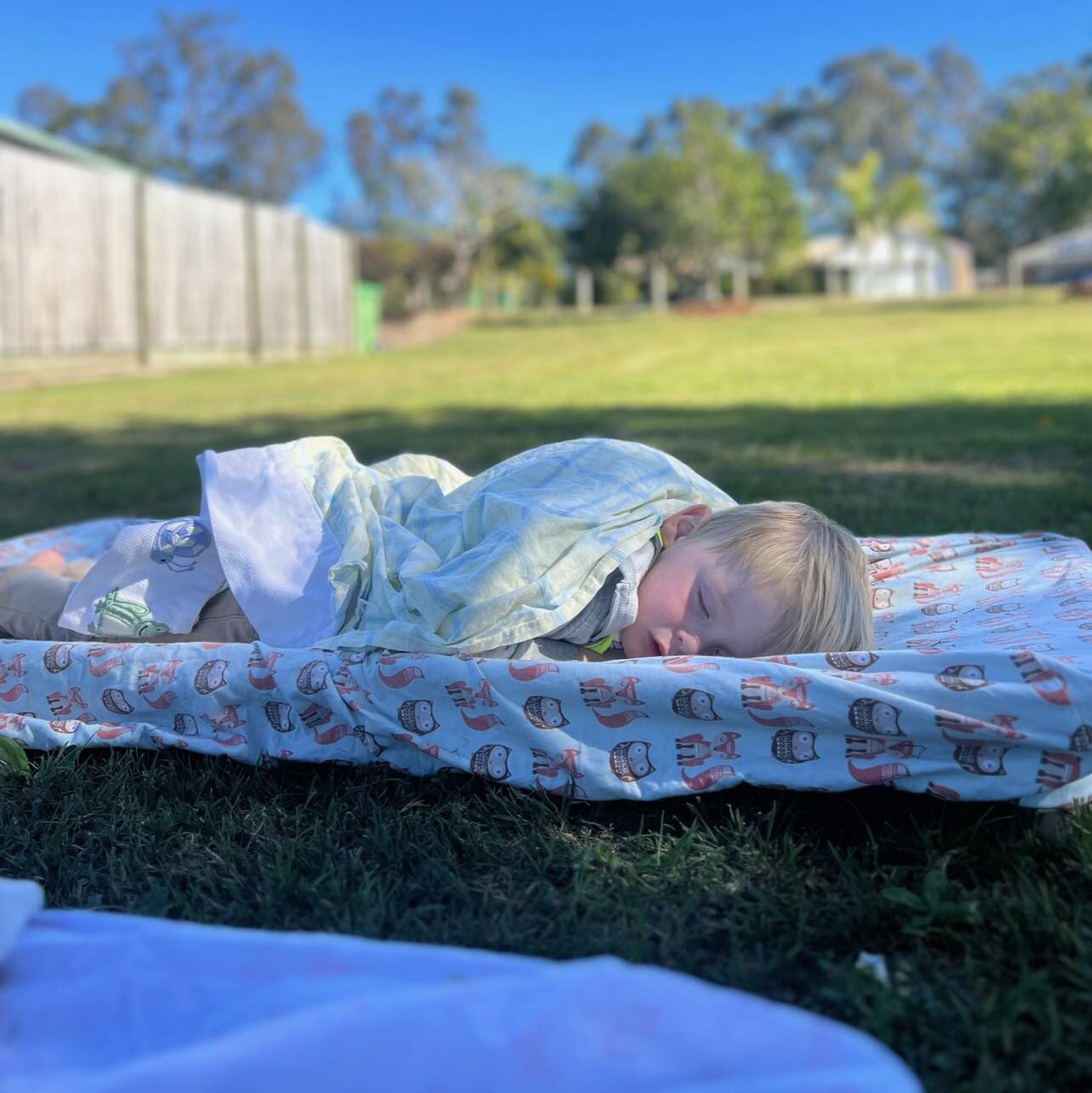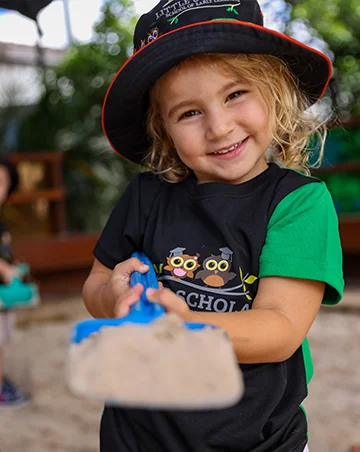The amount of sleep a child needs will depend on their age, with infants (4-12-month-olds) needing roughly 12-16 hours a day, toddlers (1-2-year-olds) requiring 11 to 14 hours a day, pre-schoolers (3-5-year-olds) needing 10 to 13 hours, grade schoolers (6-12-year-olds) needing 9 to 11 hours, and teens needing roughly 8 to 10 hours, on average, according to Queensland Health.
With that out the way, let’s look at this a little more closely as well as why sleep is so important to a child’s development, how to tell if your child isn’t getting enough sleep, and some tips and tricks to help your child fall asleep just that little bit easier.
Why is sleep important for little ones?
Getting enough sleep is crucial for the overall health and well-being of children. It plays a fundamental role in many essential physiological and cognitive processes, including growth, immunity, learning, and memory. When children are sleeping, their bodies release growth hormones that help them develop and build the muscle mass they need. Additionally, sleep strengthens the immune system, which helps children fight off infections and diseases.
Furthermore, sleep has a critical impact on cognitive functioning, especially in the areas of learning and memory. During sleep, the brain processes and consolidates information learned during the day, which is important for memory formation and retention. Adequate sleep also enhances children’s ability to focus, pay attention, and regulate their emotions, leading to better academic performance and social interactions.
However, it is not just the quantity of sleep that matters, but also the quality. Good quality sleep means uninterrupted, restful sleep that allows the body to go through all the necessary sleep stages. These sleep stages include non-rapid eye movement (NREM) and rapid eye movement (REM) sleep, which are essential for physical and mental restoration. A regular sleep routine that allows children to go to bed and wake up at consistent times can help establish healthy sleep patterns.
How to tell if your child isn’t getting enough sleep
Inadequate sleep can significantly impact a child’s physical and mental health. When a child doesn’t get enough sleep, they may exhibit a range of symptoms that can affect their daily life.
One of the most common signs of sleep deprivation in children is daytime sleepiness. The child may fall asleep at odd times, such as during class or while watching television. This could affect their ability to participate in activities, learn lessons, or complete tasks.
Additionally, and counter-intuitively, sleep-deprived children may also sometimes appear more hyperactive, especially in younger children. They may have difficulty sitting still, fidgeting, or constantly moving around. This hyperactivity can make it challenging for them to pay attention in class, affecting their learning and academic performance.
Sleep deprivation can also cause behavioural problems in children. They may become more irritable, moody, or cranky than usual. They may have a shorter temper and be more prone to outbursts or tantrums.
Moreover, the lack of sleep can impact their overall mood and ability to regulate their emotions. As a result, they may struggle with social interactions and have difficulty making friends. When a child is sleep-deprived, it can have a significant impact on their daily life, including their behaviour, academic performance, and overall well-being.
If you believe your child isn’t getting enough sleep, it’s important to garner a comprehensive understanding of the situation through careful observation. This helps to identify the various factors contributing to the problem. When trying to improve your child’s sleep, you should take into consideration the child’s age and what might be the underlying causes of their sleep difficulties. It’s also important to involve the child in the treatment process. This ensures that everyone is on the same page and working together towards a solution that works best for the child.
So, how much should children sleep?
As we mentioned earlier the amount of sleep your child needs depends on their age, with infants needing roughly 12-16 hours a day, toddlers 11 to 14 hours a day, pre-schoolers 10 to 13, grade schoolers 9 to 11 hours, and teens needing roughly 8 to 10 hours, on average. But what other factors can affect how much and the quality of sleep your child gets?
There are various elements that impact the quality of sleep in children, including genetic factors, sleep habits, medical conditions, caregiver factors, screen time, and environmental factors. Be cautious of what might be going on both within your child and in their environment in order to optimise their sleep quality.
How to get children to sleep
- Set an individualised bedtime based on your child’s sleep needs and patterns.
- Set a consistent wake-up time to keep your child’s body clock in a regular rhythm.
- Create a comforting bedtime routine, try and include things like light playtime, baths, brushing teeth, a bedtime story, etc.
- Turn off screens at least two hours before bedtime to avoid the interference of blue light with the production of melatonin (the sleep hormone).
- Reduce stress before bedtime to avoid excess amounts of cortisol in your child’s system. Keep pre-bedtime activities calm, always with sleep in mind.
- Create a sleep-inducing environment with soft sheets, room-darkening shades, and relative quiet to reduce distractions.
- Keep the bedroom temperature around 18 to 21°C at night. These cooler temperatures help children fall asleep faster.
- Address bedtime fears through reassurance, or even try choosing a special toy to “stand guard” at night, or “monster spray” – this can really just be an air freshener or something else…
- Focus on relaxation techniques to calm your child, such as deep breathing.
- Be aware of sleep disorders, such as persistent nightmares, snoring, or breathing through the mouth, and talk to your paediatrician if you have concerns.
By implementing healthy sleep habits and addressing any potential sleep disorders, you can help your child get the restful and restorative sleep they need for optimal growth and development!
At Little Scholars, we ensure a calming routine to get children ready for rest time. That includes calm down activities, such as mindful breathing, quiet stories, relaxing music and more. If you’d like to learn more about how we introduce rest time activities, and how we can help by mirroring what you do in your family, please let us know.



